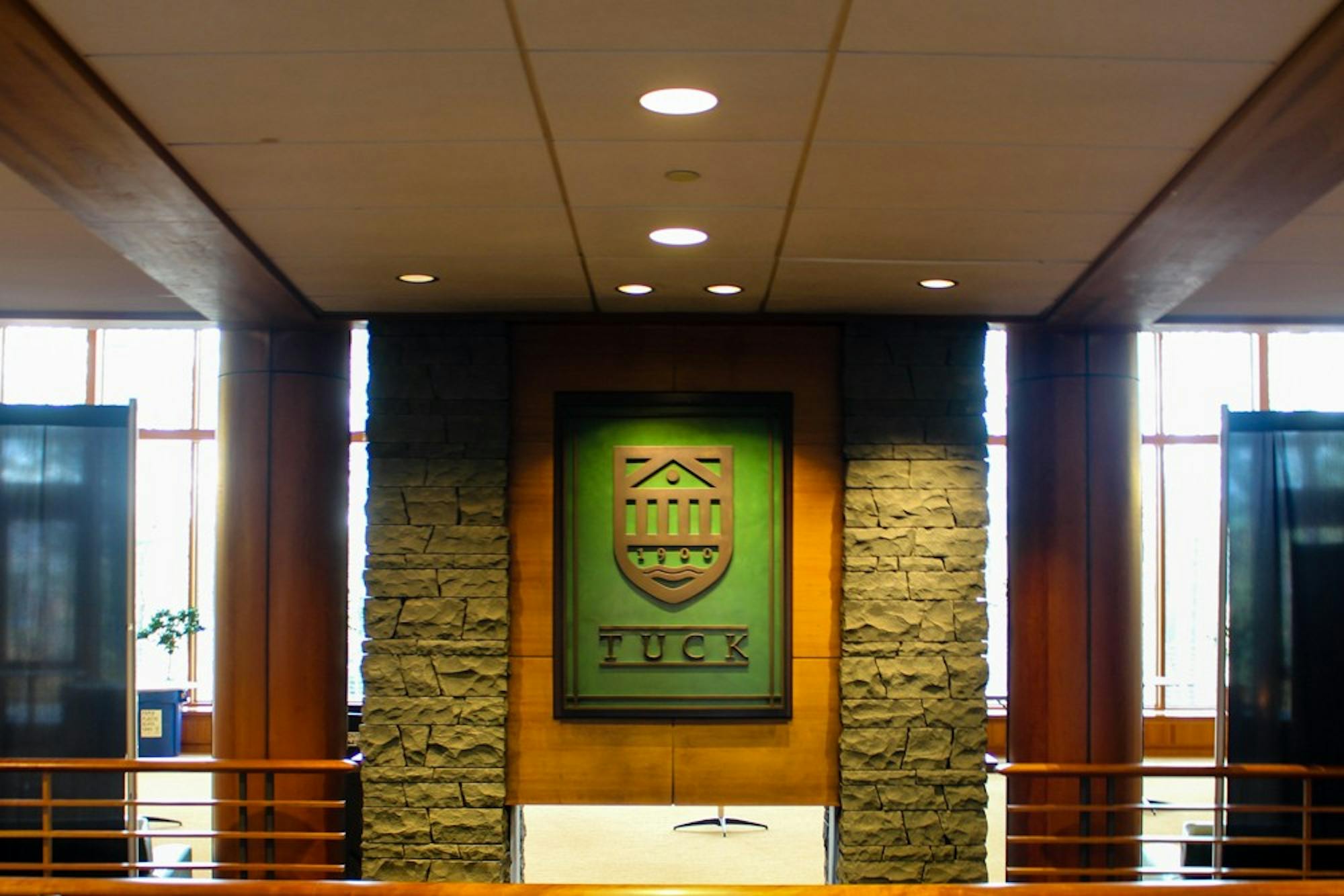While the gulf between graduate and undergraduate students at Dartmouth can sometimes appear vast, the Tuck Mentors program at the Tuck School of Business — founded as the Dartmouth Professional Insight Network three years ago by Tuck students — aims to create a better relationship between Tuck and undergraduate students.
Sydney Schuit Tu’20, a leader and mentor for the club, said that Tuck students have valuable experiences which make them excellent mentors to undergraduates.
“Tuck students have real-world business experiences and undergrads tend to be searching for what they want to be when they grow up,” Schuit said. “Tuck Mentors is a nice opportunity to bring the two campuses together.”
The program has two “pillars,” according to Schuit: career exploration and a mentorship program.
The career exploration pillar aims to assist undergraduates in exploring a wide variety of potential careers. Schuit said that although the Center for Professional Development offers assistance for career options such as consulting and finance, Tuck students can offer a larger variety of career expertise.
Schuit said that the program is organizing a career-exploration fair that will occur on Nov. 6. At the fair, there will be different booths for a variety of industries, including finance, marketing, media and social impact.
“Undergraduates can come and go as they please and ask direct questions to Tuck students,” Schuit said.
The program is also planning smaller-scale, themed dinners at Molly’s Restaurant, where undergraduates can talk to Tuck students about their experiences. At an upcoming marketing-themed dinner, for example, Schuit said that there will be a Tuck mentor for every five or six students.
The program’s mentorship program pairs each participating undergraduate student with a second-year Tuck student for a year, starting in the spring. This year, there are 50 pairings, according to Schuit. She added that this one-on-one mentorship provides guidance for undergraduates throughout their “career discovery journey.”
“Tuck student mentors act as a resource for their undergraduate mentee as he or she goes through the entire process of what should my resume look like, interview prep and any questions that that person has,” Schuit said.
The Tuck Mentors program benefits both mentors and mentees, Schuit said.
“We hope undergraduates gain access to a bigger network and mentorship throughout the entire career processes,” Schuit said. “I think those of us at Tuck either benefited from a mentor or wish we had had a strong mentor.”
Schuit expressed concern over the awareness of the club and indicated that improving outreach for the program is a main priority. Last year, the program began working with the Rockefeller Center for Public Policy and the CPD, Schuit said.
“We are trying to get the word out more this year to the undergraduate campus and expand the amount of people engaging with the club,” Schuit said.
The Rockefeller Center’s Management and Leadership Development Program director Robin Frye said that MLDP hopes to co-sponsor dinners with the Tuck Mentors program and help encourage students to join because the two programs complement each other.
“MLDP prepares students to prepare for a workplace culture within an academic setting,” Frye said. “Then, through the Tuck Mentors program, dinners and the career fair, students are tapping into real, practical advice from people who have been in the workforce and also furthering themselves towards getting a job after graduation.”
Coco Chu ’21, a pre-med student, joined the Tuck Mentors program last spring. She said that wanted to learn more about business to learn whether she wanted to combine her interests in business and medicine.
Chu said that she has had a positive experience with her mentor, Linda Horner Tu’20, adding that Horner advised her on club leadership and that they worked together on interview preparation.
“I am always so amazed by how much experience that my mentor has had and the professional situations she has dealt with,” Chu said. “Whenever I ask her how to approach a certain situation, she always has really great solutions that I would never think about.”
Horner said she became a mentor in order to give back to the community and provide help similar to what she was provided in her undergraduate years.
“Thinking back to how I got here, I realize I would not have gotten here if it were not for the mentors in my life,” Horner said. “I didn’t have the opportunity to have this set-up, structured program in my undergraduate [years], and so I had to look outside of my school to find that person who pushed me to explore things.”
She added that she sees herself as a “sounding board” and as someone who can help Chu through things like interview preparation and success at internships.



